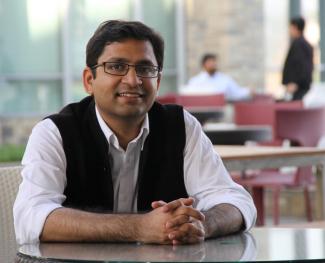Impact of Elite Capture on the Provision of Public Services
The rural sector of India while accounting for almost 70% of India’s population has benefitted considerably less from the high economic growth the country has experienced over the last two decades. It has been argued that this is driven by weak delivery of basic services to rural areas. Despite large expenditures in rural development, a centralized bureaucracy with low accountability and inefficient use of public funds limits the impact on poverty and growth. To help India’s growth and to ameliorate poverty, a community based approach has been suggested where people in rural areas make decisions about development programs. By fostering a capacity for collective action and by promoting a voice, the rural poor might be empowered to direct the allocation of resources. However, a community based approach - is not without its weaknesses. Failure can occur when particular subgroups of the community, are able to mobilise resources to further their own self-interest. This appropriation is termed ‘elite capture’. So while community driven development is a promising path to achieving the goal of rural development and empowerment of the poor, there is a need to understand how it is potentially hampered by elite capture. The main research questions we want to examine are: Does elite capture impact the allocation of public goods? Why does elite capture occur? Does trust between leaders and their followers generate elite capture? Does the status of the community leaders matter? How does the creation of a new political institution impact leadership patterns and, consequently elite capture? We aim to answer these questions using a field experiment with approximately 900 participants in 20 villages, to be conducted in Andhra Pradesh (AP), India. The proposed bifurcation of Andhra Pradesh into two states - the proposed state of Telengana and the remaining districts of AP - provides an opportunity to study the dynamics of leaders and elites between states that have shared social and cultural institutions yet differ markedly in other aspects such as those of size and political institutions. Whether, elite capture is more widespread in a new state with new political institutions, such as new governance hierarchy versus an established state with an entrenched bureaucracy is unclear, justifying the need for this research. The field experiment will involve two tasks that will allow us to examine trust and cooperation amongst high and low status group members. By comparing the behaviour of leaders of different status, their contribution rates and propensity to be followed by their group members we aim to identify if some leaders have a higher likelihood of expropriating resources and engaging in elite capture. These tasks along with household and community level surveys will serve to probe corruption by elites across provinces and help design better policies aimed at improving governance and allocation of public services.






